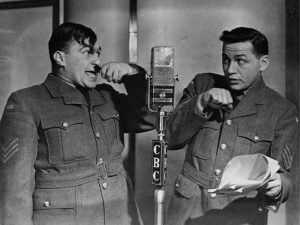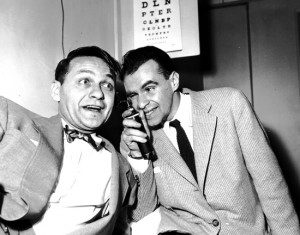
Most regular readers of the Barris Beat have recognized from the vintage of some of my memories that I grew up in the 1950s and ’60s. During most of those formative years, I lived either in or around Toronto. So, whatever was going on in the Big Smoke culturally, either I was in the middle of it, or I missed it by accident.
Of course, there is that famous quote attributed to one of Robin Williams, Pete Townsend (of The Who) or Timothy Leary:
“If you can remember the ’60s, you weren’t there.”
The implication, of course, is that youth culture of the 1960s meant its participants wasted themselves 24/7 on drugs, alcohol, sex, love-ins, rock ’n’ roll, revolutionary literature and/or anti-war demonstrations. Well, I admit – with one or two exceptions on that list – that I was there. And I can remember it. (more…)

